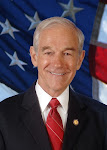In the aftermath of the now infamous remark “you lie!” by Rep. Joe Wilson (R-SC) during President Obama’s most recent Address to Congress, former President Jimmy Carter had some decidedly interesting thoughts on the issue: “I think an overwhelming portion of the intensely demonstrated animosity toward President Barack Obama is based on the fact that he is a black man, that he’s African American.”
Personal opinions aside, Mr. Carter’s remark does shed some light on the discussion of race in this country. After Barack Obama was elected to the presidency, many political pundits opined that racism in the United States was dissipating, as evidenced by the large white turnout that Mr. Obama received. More white Americans voted for Barack Obama than the two previous Democratic presidential candidates, John Kerry and Al Gore. Additionally, three states that belonged to the Confederate States of
While Rep. Joe Wilson’s comment was certainly inappropriate for the venue and disrespectful to the Office of the Presidency, it is of the utmost importance not to immediately pull out the “race card.” This concept is comparable to the predicament that a white police officer faces when confronted by an aggressor that is not of the same race, such as in the cases of Sean Bell and Omar J. Edwards. In both situations, the prominent civil rights activist Rev. Al Sharpton accused the police officers of essentially acting on racial prejudices that would not have come into play had Messrs. Bell and Edwards been white. The danger of such an accusation lies in the affect it has on a law enforcement officials’ ability to do his or her job. Second-guessing out of fear of being branded a racist will make an already hazardous job worse.
Just as police officers need to be able to do their job (albeit with restraint) without race in the back of their minds, politicians and the American people need to be able to ask tough questions and critically analyze policy initiatives without fear of the asinine “racist” label. Inappropriate charges of racism only block rational debate.
I believe that policy, not race, is the number one cause of apprehension among President Obama’s critics. Popular concern is over the record deficit spending and government overreach amongst the administrations initiatives. The same concerns would still exist with a white male in office.
With the frenzied state that Washington is in over the major pieces of legislation confronting Congress, sound judgment and rational discussion is needed now more than ever but is seemingly absent. Race is an issue that ignites emotions which close the mind to sensible deliberation.
Justice is blind. Why is politics not?





